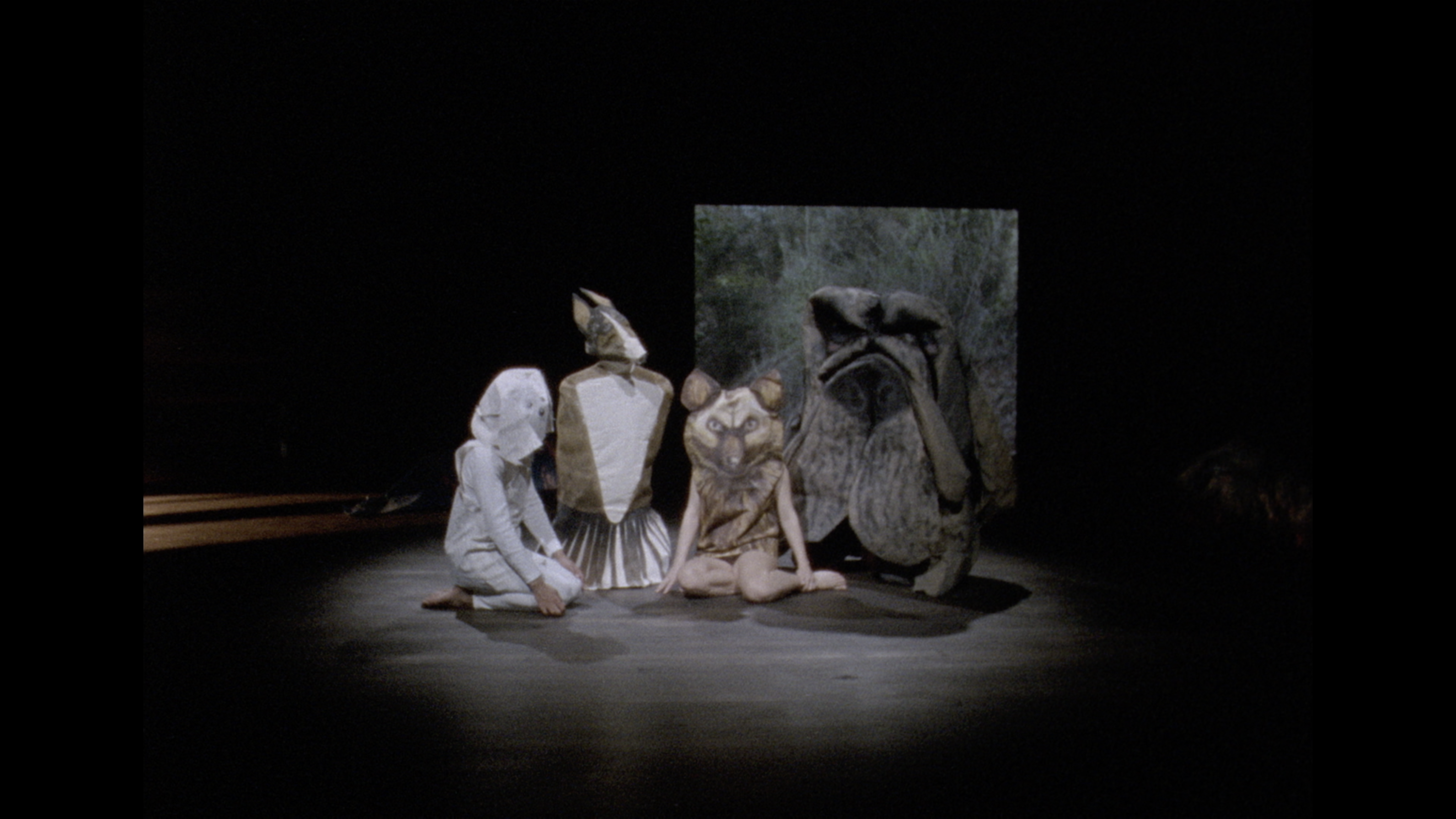THEODORA OR THE PROGRESS | ALPINA HUUS
The 8mm film Theodora or The Progress (2021) opens with the image of small dogs scurrying along the streets of a city, marking the territory with pee spots on the walls or playing with small branches randomly found. The frame turns black: a man, disguised as a dog, guides us inside a theater, with this mise an abyme effect we find ourselves in front of an empty stage. The play that develops within the video and in the various places of the theater is divided by chapter and with each chapter we are introduced to new characters. A dancer moves following a music we can’t hear, a melancholy rock star plays the bass, a performer moves among rubber iceberg sculptures. In the shadow of the theater, dogs re-emerge, but this time as men disguised as dogs. Their intervention seems almost prophetic: each actor enters into dialogue with a different dog-man, who on the one hand seems to stun him, on the other hand to give him the opportunity to access a new world, to detach himself from reality to enter a transcendental dimension.
The work by the Alphina Huus collective in this theater without spectators is built as a reflection on the theater itself: Theodora or The Progress proposes a meta theater in which the different operators are shown in moments normally hidden from the public. By highlighting the frailties and doubts of each character, this “behind the scenes” becomes the real protagonist of the video. The rock star looks lost in the mirror, two actors talk to each other in the empty stalls, a dancer, almost bored, scribbles in her notebook. The human being is shown in his fragility and melancholy and the dogs, with their intervention, seem to heal these men, giving rise to a reversal of roles.
“Animalism is not a naturalism” pronounces a voiceover: the theater is emptied of men and filled with dogs who now seem to have total control of the place and move freely. The dog embodies the metaphor of a new attitude: taking a community aggregation as an example, dogs remove all hierarchy and discrimination, favoring a freer and more understanding relationship between individuals. By breaking into the world of men, these animals change its rules, both showing the weaknesses of our society and proposing a new degree of freedom that can be reached with a return to instinct, to animalism.
Theodora or The Progress, in its complexity and stratification, proposes a reflection on a return to an original form of man, enhancing the animal part. The voice concludes his monologue by firmly telling us “The time of animalism is the time of the impossible and the unimaginable. This is our time: the only time that is left to us “. Man is now one with the animal, he leaves the theater and the fiction to enter a cave, almost returning to his primitive dimension, leaving behind a civilization in which it is no longer possible to recognize oneself.
Alpina Huus
Theodora or The Progress (2021), film stills. © alpinahuus.ch
27/04/2022

